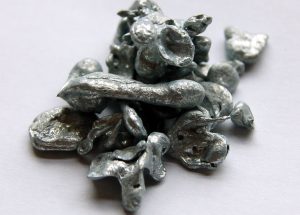Science | 10 Interesting Facts
All Stories

White holes are theoretical objects in astrophysics that are essentially the reverse of black holes. While black holes are known for their intense gravitational pull from which nothing, not even light, can escape, white holes are imagined to be regions…

The wheel and axle is one of the six simple machines, which are fundamental devices that make work easier by multiplying or changing the direction of force. It consists of a wheel mounted on an axle, with the wheel rotating…

Water molecules, composed of two hydrogen atoms covalently bonded to one oxygen atom (H2O), exhibit unique properties that contribute to their importance in sustaining life and shaping Earth’s ecosystems. The bent molecular structure of water results in a polar arrangement,…

Water chemistry is a branch of chemistry that deals with the chemical properties and behavior of water. It encompasses the study of the composition, structure, and reactions of water molecules and the substances dissolved in water. One of the fundamental…

Water is one of the most essential substances for life on Earth, covering approximately 71% of the planet’s surface. It exists in various forms, including oceans, rivers, lakes, glaciers, and groundwater, and plays a crucial role in supporting ecosystems, sustaining…

Ytterbium is a chemical element with the symbol Yb and atomic number 70. It belongs to the lanthanide series, a group of rare earth elements located in the f-block of the periodic table. Ytterbium was first discovered in 1878 by…

Yttrium is a chemical element with the symbol Y and atomic number 39. It belongs to the transition metals and is often classified as a rare earth element due to its chemical properties. Yttrium is named after the village of…

The yolk is the central and typically yellow part of an egg, and it is a rich source of essential nutrients. Comprising about one-third of the total weight of an egg, the yolk is surrounded by the egg white or…

Yeast is a type of single-celled fungus that plays a crucial role in various biological processes, particularly in the context of fermentation and baking. One of the most well-known species of yeast is Saccharomyces cerevisiae, which is widely used in…

The yard is a unit of length in the imperial and U.S. customary systems of measurement, and it is defined as exactly three feet or 36 inches. This traditional unit has historical roots dating back to medieval England, where it…

Xenon is a chemical element with the symbol Xe and atomic number 54 on the periodic table. It belongs to the noble gas group, which also includes helium, neon, argon, krypton, and radon. Xenon is colorless, odorless, and tasteless, existing…

Zoology is a branch of biology that focuses on the scientific study of animals, encompassing their structure, behavior, physiology, classification, and distribution. Derived from the Greek words “zoon” (animal) and “logos” (study), zoology encompasses a vast array of disciplines, ranging…

Zirconium is a chemical element with the symbol Zr and atomic number 40. It is a lustrous, gray-white, strong transition metal that resembles titanium in its physical and chemical properties. Zirconium is commonly found in the Earth’s crust and is…

Zinc is a chemical element with the symbol Zn and atomic number 30. It is a bluish-white, lustrous metal that is relatively abundant in the Earth’s crust. The element is essential for various biological processes, playing a crucial role in…

Zero, the digit 0, holds a unique and fundamental place in mathematics and the numeral system. It serves as a placeholder, indicating the absence of a value in a particular place value position. The concept of zero has a rich…














